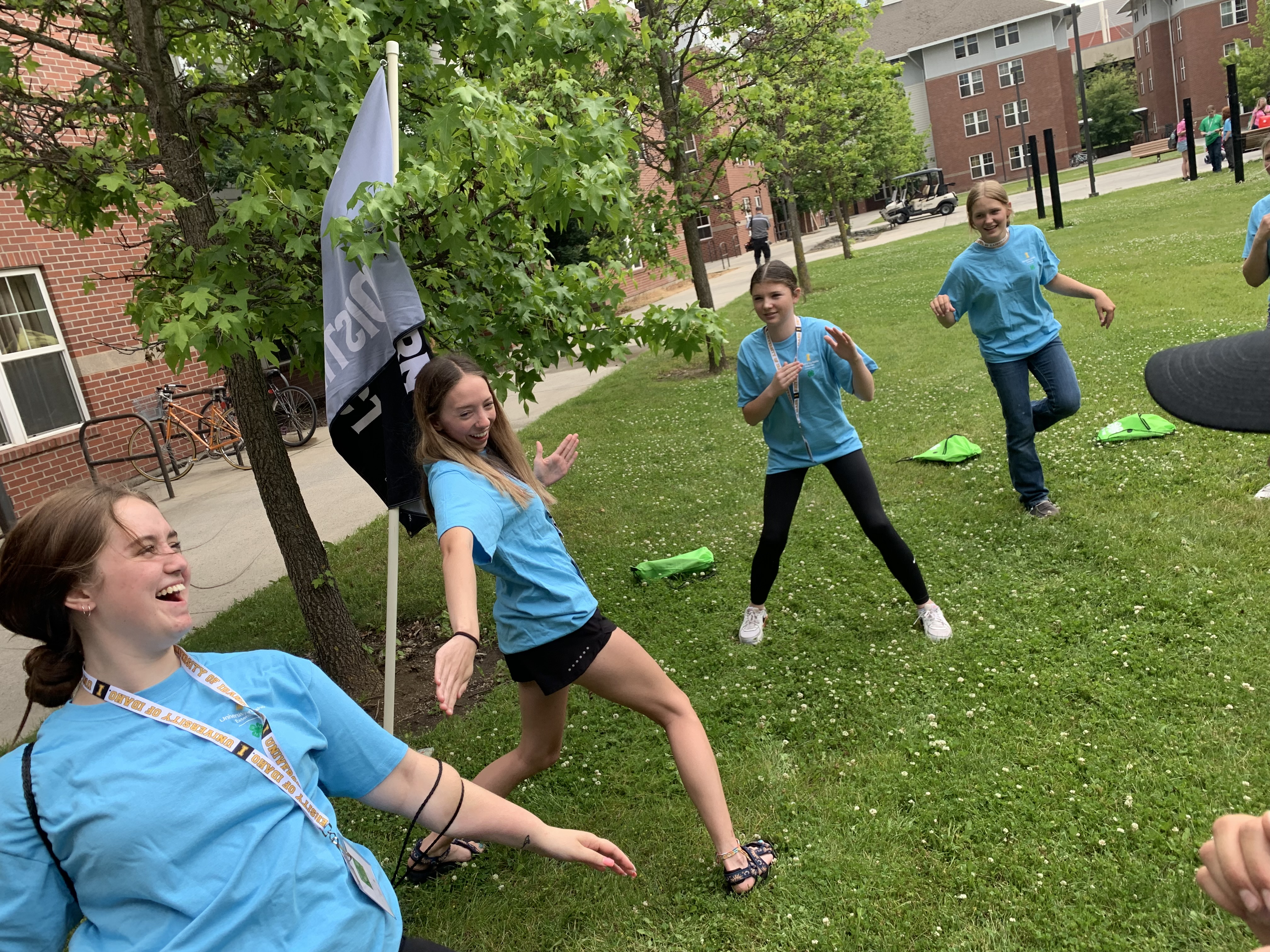Blitzing at the Beginning of Summer
Blitzing at the Beginning of Summer
Jeremy sits down with Bethany and Kim from Bonneville County to discuss the Bonneville County Summer Blitz, an exciting program packing all kinds of awesome activities into the span of only a few days to kick off 4-H activities at the beginning of summer.
Learn by doing (as described in Knowledge Corner)
The “learn-by-doing” approach allows youth to experience something with minimal guidance from an adult. Instead of being told “the answers,” they are presented with a question, problem, situation, or activity which they must make sense of for themselves. Learning by doing is called “experiential learning” because it is based on learning from experiences.
- Experience (Doing)
- Leader: Describe the experience or activity you will have youth do before they are told or shown how. Encourage youth to think about what they might see or what might happen by asking questions such as “What do you expect to see?” or “Write down your hypothesis or prediction of what might happen here.”
- Youth: Experience the activity: perform, do it. Except for basic instructions on organization, safety, or time requirements, youth “do” before being told or shown how.
- Share (What happened?)
- Leader: Develop questions you will ask the students about their experience and their reaction to it after they have completed the activity.
- Youth: Share the results, reactions, and observations publicly. Youth describe the results of the experience and their reactions.
- Process (What’s important?)
- Leader: Develop questions that you will ask the students about something they felt was important about the experience.
- Youth: Process by discussing, looking at the experience; analyzing, reflecting. Youth relate the experience to the targeted subject matter and life skills being learned. Apply Asking Questions The final two steps provide activities or questions for youth to help summarize what they have experienced. It enables them to generalize what they have learned to other examples and situations.
- Generalize (So what?)
- Leader: Develop questions that will ask the students how the experience related to their own lives.
- Youth: Generalize to connect the experience to real-world examples. Youth connect the subject matter and life skill discussion to the larger world.
- Apply (Now what?)
- Leader: Develop questions that ask the students how they could apply what they learned to a similar or different situation.
- Youth: Apply what was learned to a similar or different situation; practice. Youth use the new subject matter and life skill experiences in other parts of their lives. One of the most important roles of the adult group leader is to stimulate youth to think about “Why?” and “How?” and “What if?” Asking open-ended questions along the way helps challenge youth to think. This also provides opportunities to evaluate their experience and progress along the way.
Young people are attracted to 4-H because they will make and do things by participating in 4-H projects and activities offered in clubs, camps, and other groups. However, when working with youth, it is equally important to emphasize the teaching of “life skills.” These are important in helping young people become self-directing, productive, contributing members of society. They are a broad range of skills that are considered life-long needs and important attributes in career exploration and workforce preparation. These life skills have been subdivided into the following five categories:
- Enhance Learning Skills, such as capitalizing on curiosity, coping with change, identifying sources of knowledge, developing psychomotor skills (strength and endurance, coordination, and precision).
- Strengthen and Use Decision Making Skills, such as assessing needs and interests using resources (time, energy, talents, and money) wisely, establishing goals and priorities.
- Develop a Positive Self-Concept. Self-concept is an emerging belief about oneself that contributes to one’s ability to cope successfully with issues in one’s life, and eventually making a positive impact on the lives of others.
- Communicate With and Relate to Other People. Develop communication skills that enhance the ability to understand and respect what was said with the openness to develop another point of view. This includes: verbal and non-verbal communication, record-keeping practice, social skills such as tact/diplomacy, making friends, negotiation, and conflict management.
- Respond to the Needs of Others and the Community in which they live, to become aware of the concerns of the people who live there, and take appropriate action. This includes: nurturing others in a manner that respects their values and concerns, accepting responsibilities for individual and group goals within the family, club and community setting; and citizenship participation responsibilities.
Trivia
Last Episode’s Answer: ~65,000 youth were impacted by Idaho 4-H in the last year.
This Episode’s Question: Which of the following does the University of Idaho fall into?
- Service Grant Institution
- Land Grant Institution
- Community Grant Institution
Land Grant Institution
Special Guests
- Bethany Church
- Kimberly Weiland: 4-H Secretary [ Website ]
Episode Credits
- Host: Joe Stanley
- Host: Jeremy Hampton


